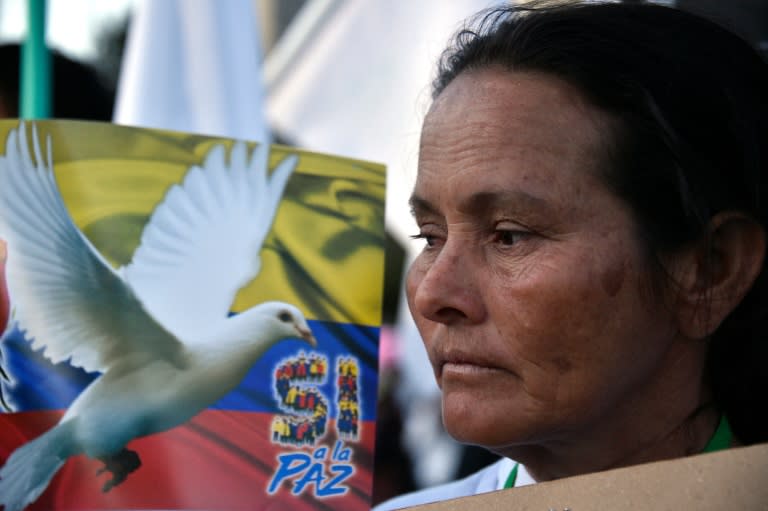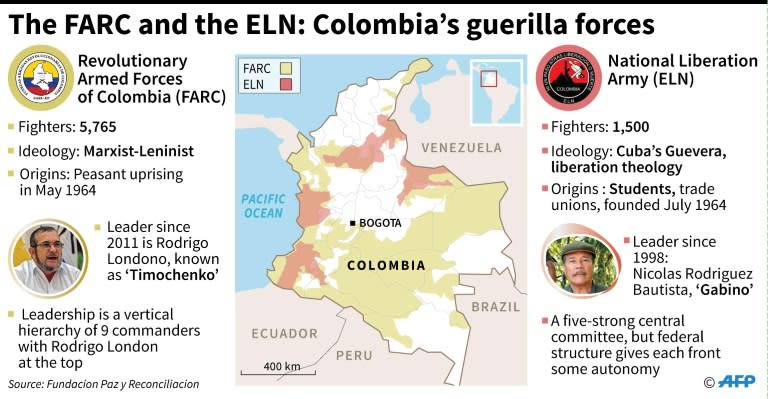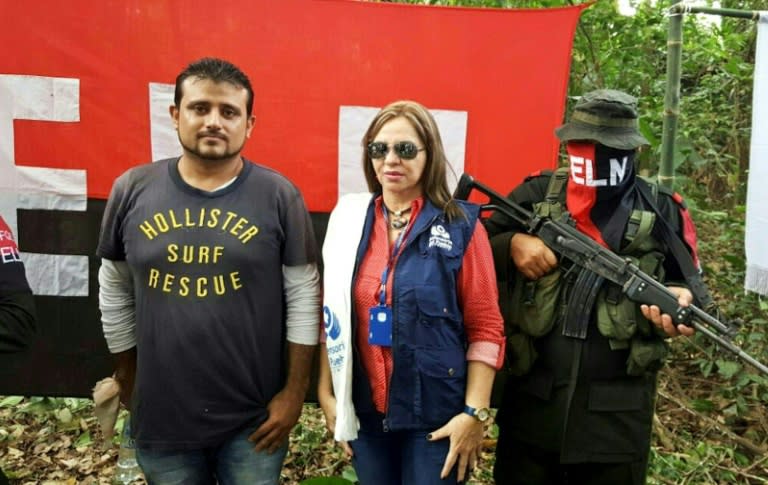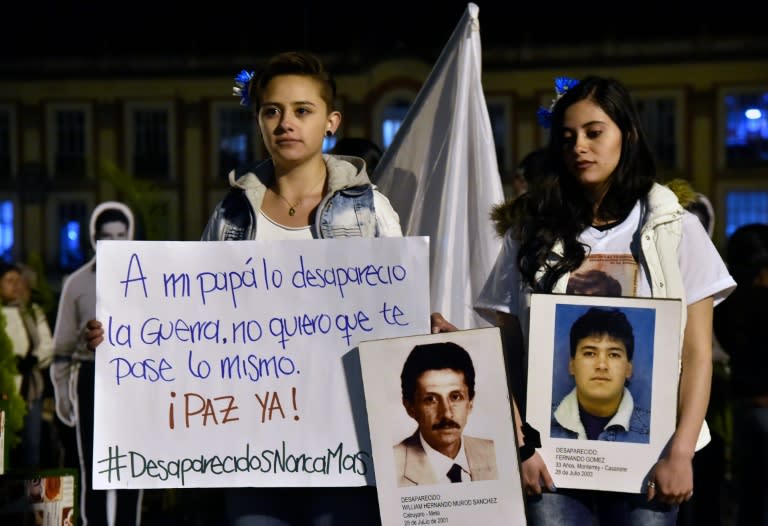Colombia in suspense over peace talks with ELN rebels
Peace talks between Colombia's government and leftist ELN rebels hung in suspense Thursday, hours before their scheduled launch, as leaders complained the insurgents had not released a key hostage. The talks are meant to open a new, decisive front in President Juan Manuel Santos's efforts to end an armed conflict of half a century that has killed more than 260,000 people. Santos, the winner of this year's Nobel Peace Prize, has already signed a peace deal with the larger Revolutionary Armed Forces of Colombia (FARC). But voters rejected it in a referendum on October 2, sending the two sides back to the drawing board. That has complicated the peace process with the country's second-biggest rebel group, the National Liberation Army (ELN) -- a more intransigent negotiating partner. - Hostage dispute - The ELN had promised to free its hostages before the talks open in the Ecuadorian capital Quito -- as the FARC did before starting negotiations in Cuba in 2012. But the ELN bristled last week when the government's chief negotiator issued an ultimatum for it to free former congressman Odin Sanchez. Since then, there has been no news on the fate of the hostage -- or hostages, according to some sources -- still being held by the leftist guerrillas. Sanchez voluntarily went into the ELN's custody in April to take the place of his brother Patrocinio, who had fallen ill after three years in captivity. Sources in the Catholic Church, which has played a part in preliminary negotiations, say the rebels are also holding a doctor named Edgar Torres. - Hours to deadline - The talks were due to open at 5:00 pm (2200 GMT). It is the fifth attempt to make peace with the ELN over the years. Santos said on Twitter late Wednesday that he had not yet signed off on the start of negotiations because Sanchez had not been freed. The ELN's head negotiator Pablo Beltran tweeted in response: "We are fulfilling everything that was agreed." He said the ELN negotiating team had been in Quito since Wednesday night. "There is still time -- a few hours," said the government's chief negotiator Juan Camilo Restrepo in televised comments on Wednesday night. "We have reasonable confidence because it is the spirit and good faith that encourages the government to start this dialogue." - History of kidnappings - Like the FARC, the ELN formed in 1964 and is blamed for killings and kidnappings during a many-sided civil war. Analyst Camilo Echandia of Colombia's Externado University said the ELN was reluctant to accept the release of hostages as a condition for talks. "That is the big difference between the ELN and the FARC," he told AFP. "These negotiations are going to be very complicated." Frederic Masse, a specialist on armed groups at Colombia's Externado University, said: "What is still lacking in the case of the ELN is trust between the two delegations" to the talks. Incidents involving ELN forces have kept tensions high in recent months. The Colombian army blamed the ELN for a non-fatal explosion at an oil pipeline near the Venezuelan border on Sunday. "The ELN guerrilla group comes strengthened to the negotiations with the government. Over the past three years this group has increased its level of violence," Colombia's Conflict Analysis Resource Center (CERAC) said in a report this month. - Toll of war - Colombian authorities estimate the ELN currently has some 1,500 members. Its activities are restricted mainly to parts of the north and west of the country, according to CERAC. Colombia's territorial and ideological conflict has drawn in various guerrilla and paramilitary groups, drug gangs and state forces over the decades. The conflict has forced nearly seven million people to flee their homes, according to Colombian authorities.






